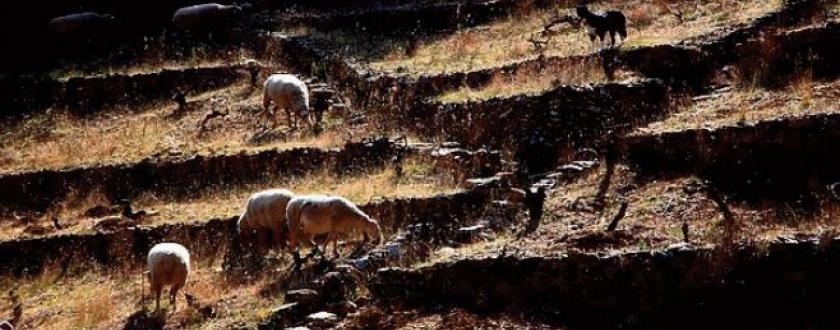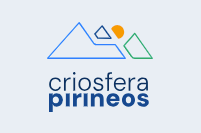Agropastoralism Côte Vermeille: agroecological management based on the complementarity of livestock farming, viticulture and olive growing.
Description of the case study
Nine farmers in Côte Vermeille have launched a new agroecology project based on the complementarity of livestock farming, viticulture and olive growing. They are developing a new and environmentally friendly production system which combines returns from extensive livestock farming with the cultivation needs of vines and olive trees which are typical of the French Eastern Pyrenees, all with a view to improving the profitability of their farms.
This group of farmers and livestock farmers are taking on the ambitious challenge of reducing the environmental impacts of their economic activities by changing their management model to one based on less intensive resource use. The new model will also integrate circular management to combine output from livestock operations with the resource needs of crops. The result is that water and soil resources are preserved thanks to less use of chemical fertilisers. Other outcomes are support to tackle fires, better farm economics and conservation of the traditional landscapes which are essential to tourism in the area.
The main project objectives are as follows:
- Implement new grazing strategies to manage and showcase pastures in vineyards and olive groves.
- Create technical benchmarks for transferring knowledge and results to other farmers.
- Improve the profitability of farms.
- Reduce the environmental impacts of farming and livestock farming.
- Preserve the wine-growing landscapes which are a key part of the local economy.
- Boost the appeal of farming and livestock farming among young people.
- Reduce the area of fallow land and the associated fire risk.
- Create and value farming produce with a strong link to the local area; promote short routes to market.
- Boost sustainable tourism in the region.
The project actions taken forward by the nine farmers involved are as follows:
- Selective grazing in vineyards and olive groves.
- Monitoring the production status of herbaceous plants on test plots.
- Generation of a contact network for the farmers and livestock farmers involved.
- Sharing out of the project returns to generate added value in the produce, particularly livestock produce.
Case mainly developed and implemented via objectives from other non-adaptation policies, though with significant consideration for climate change adaptation aspects.
Groupement Pastoral de Côte Vermeille, GDA du Cru Banyuls et des Albéres, Chambre d’Agriculture des Pyrénées Orientales, Chambre d’agriculture P. Orientales, Syndicat de cru Côte Vermeille, Lycées agricoles de Rivesaltes et de Toulouse-Auzeville, Institut national d'études supérieures agronomiques de Montpellier SupAgro, Centre d’écologie fonctionnelle et évolutive (CEFE) – CNRS, Paul Valéry University/Montpellier III, University of Barcelona, Association française de pastoralisme - Groupement pastoral des Pyrénées-Orientales, CIVAM Bio des Pyrénées-Orientales, Communauté de communes Albères - Côte Vermeille, Conseil départemental des P. Orientales, Pays Pyrénées-Méditerranée.
Additional Information
The project is led by Groupement Pastoral de Côte Vermeille with the support of GDA du Cru Banyuls et des Albéres, la Chambre d’Agriculture des Pyrénées Orientales and the project partners Chambre d’agriculture P. Orientales, Syndicat de cru Côte Vermeille, Lycées agricoles de Rivesaltes et de Toulouse-Auzeville, Institut national d'études supérieures agronomiques de Montpellier SupAgro, Centre d’écologie fonctionnelle et évolutive (CEFE) – CNRS, Paul Valéry University/Montpellier III, University of Barcelona, Association française de pastoralisme - Groupement pastoral des Pyrénées-Orientales, CIVAM Bio des Pyrénées-Orientales, Communauté de communes Albères - Côte Vermeille, Conseil départemental des P. Orientales and Pays Pyrénées-Méditerranée.
Success: the objectives have been achieved because they have been clear and concise from the outset; active participation of all key stakeholders from the region; exhaustive follow-up to facilitate an assessment of the results; high number of participating partners.
Limiting: lack of reception/management sites for transhumant herds/flocks; limited food resources for the size of the herds/flocks involved; not enough time for a detailed analysis of the large amount of information gathered.
Not yet carried out.
The project has been funded by the CASDAR Agro-écologie GIEE programme with additional support from the Conseil Général des Pyrénées Orientales. It has also contributed to the objectives of the Chambre d’Agriculture and of the local Groupement de Développement Agricole.
2015-2018 (10 years - in progress)
Reference information
PYRENEAN CLIMATE CHANGE OBSERVATORY
Avenida Nuestra Señora de la Victoria, 8
22.700 - Jaca
Huesca - España
+34 974 36 31 00
info_opcc@ctp.org





